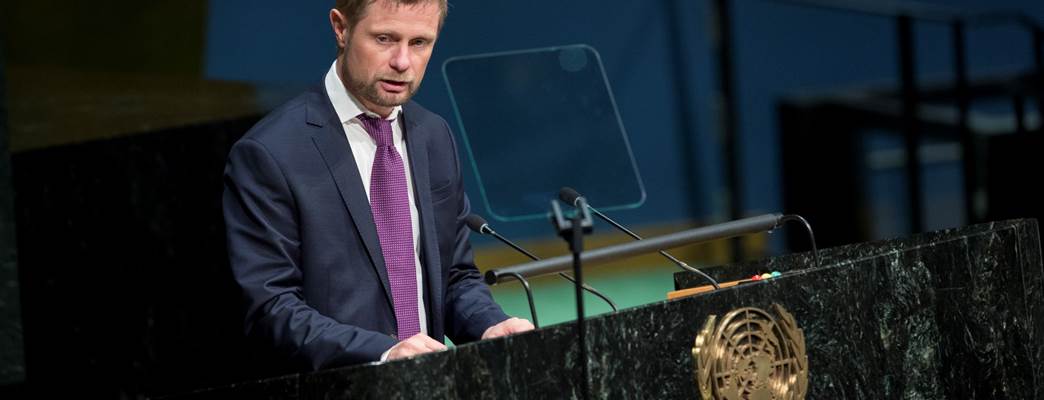President,
The preparations for this event have been long and intense. My thanks go to all involved.
The draft of the UNGASS outcome document agreed in Vienna last month was an important step. Norway had, however, hoped for a more forward-looking outcome.
The UNGASS-process has attracted enormous attention and interest. This provides an excellent basis for our preparations for 2019. We are pleased that the international debate has increasingly placed a focus on health and wellbeing.
Human rights must inspire all our work. We are pleased to note that human rights are reflected in the outcome document, although Norway would have liked to see stronger language. We regret that it was not possible to agree on language on death penalty. Norway strongly opposes the death penalty and will continue to work for its abolition.
Moreover, we register positive developments regarding access to controlled medicines. The problem concerning lack of availability, accessibility and affordability, seems to be acknowledged as a first step. What remains is to fully ensure their availability to those in need.
The outcome document welcomes, as do we, the Sustainable Development Goals as ‘complementary and mutually reinforcing’ to drug control, and recommends ‘the use of relevant human development indicators’.
While all these represent positive developments, some issues are still not dealt with adequately.
Firstly, we expected harm reduction to be recognized, accepted and brought into the document. However, we do recognize that the outcome document includes references to programs compatible with this approach: naloxone and overdose prevention, ‘medication-assisted therapy programs’ and ‘injecting equipment programs’.
18 years have passed since the previous UN special session on drugs. We still face huge challenges on almost all measurable indicators. Therefore: Have we sufficiently assessed why our approach has failed to meet our stated goals, and whether we need to re-address the drug challenge?
The world drug problem is a multifactorial phenomenon. A successful approach requires coordinated contribution from several sectors – at local, national and international levels. We must think health in all policies.
Real involvement and participation of the wider UN is necessary to ensure an effective global drug policy that puts humans first. This requires coherence between drug control and security, human rights, public health and development policies.
This work should be under the leadership of the Secretary General and done at principals level – in the UN Chief Executives Board. Continued and strengthened civil society involvement will also be a key factor.
In sum; heading for 2019, we need to be more ambitious. Some elements of our approach work well, but need to be strengthened. Other elements must be questioned. New ones must be subject to an open-minded debate.
Our overall goal, to promote health in all policies, must inform our debate forward to a larger extent than it has so far.
Thank you.
